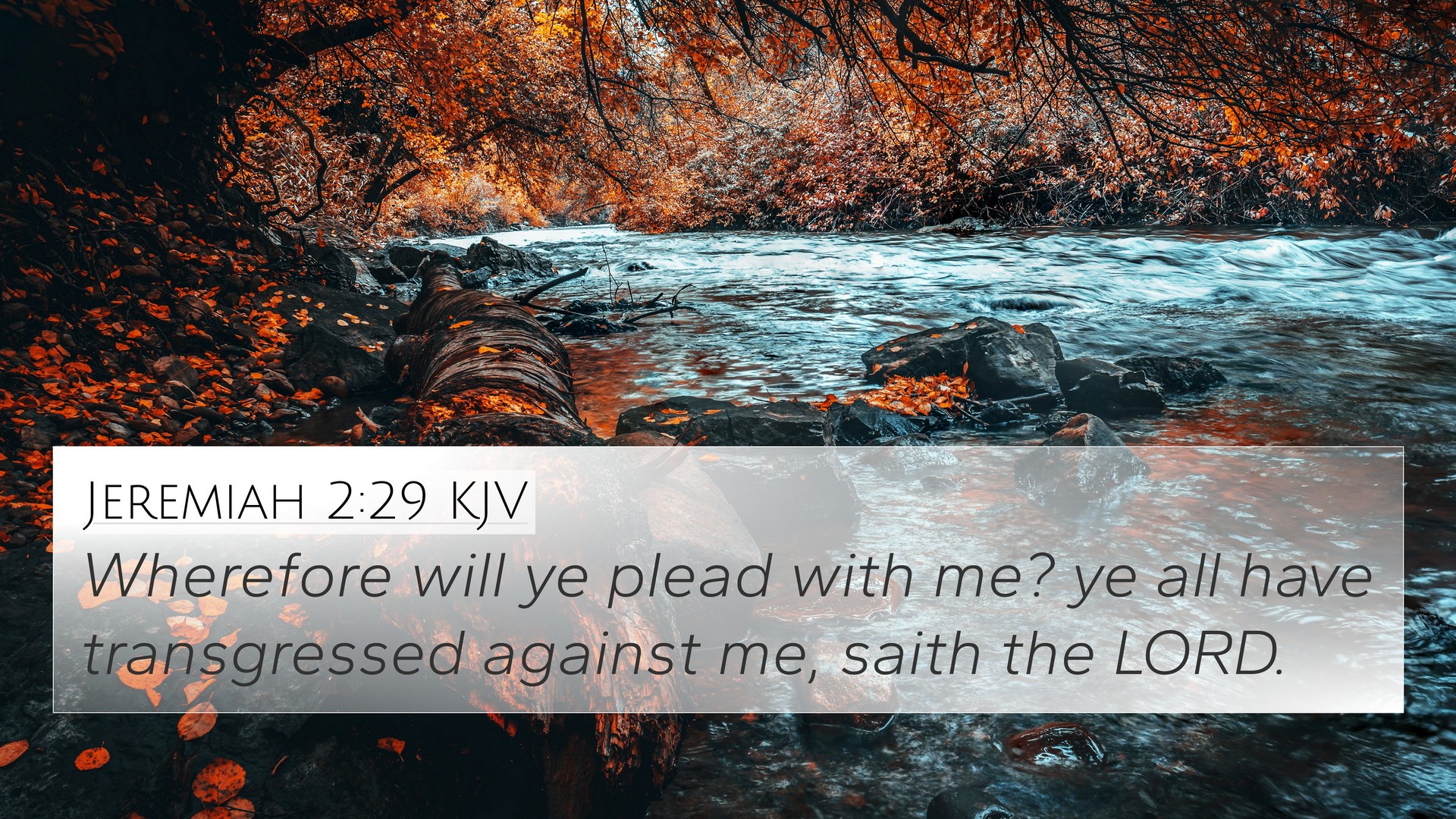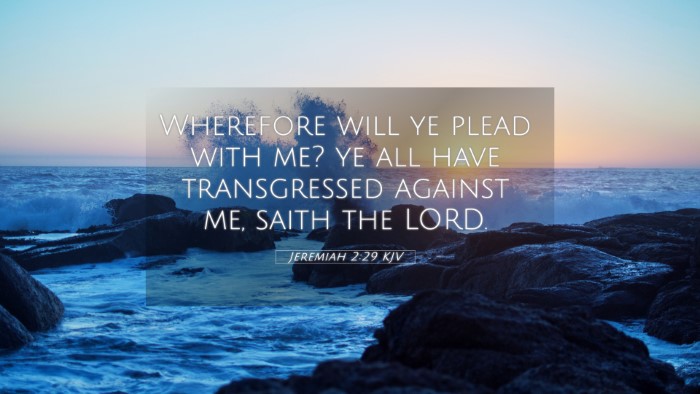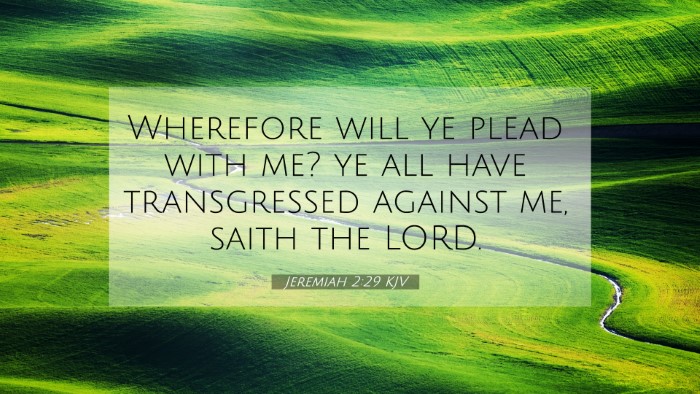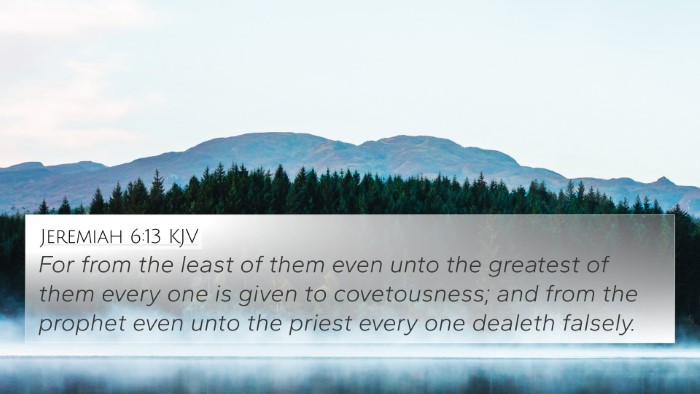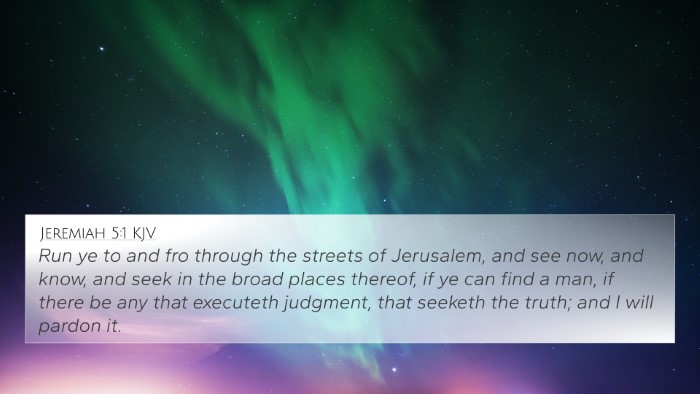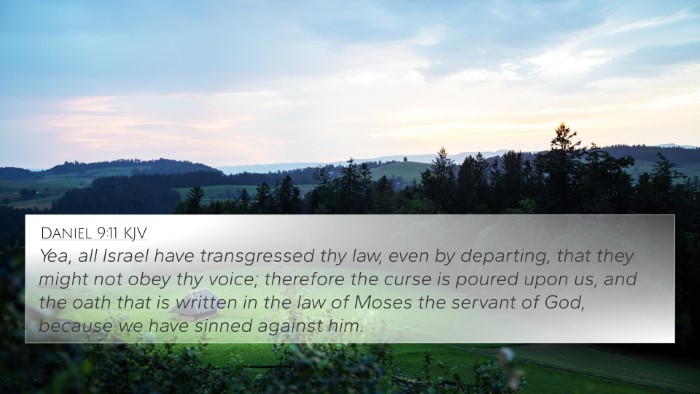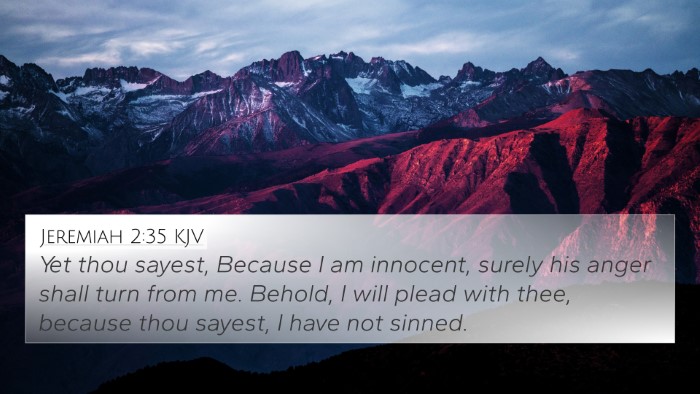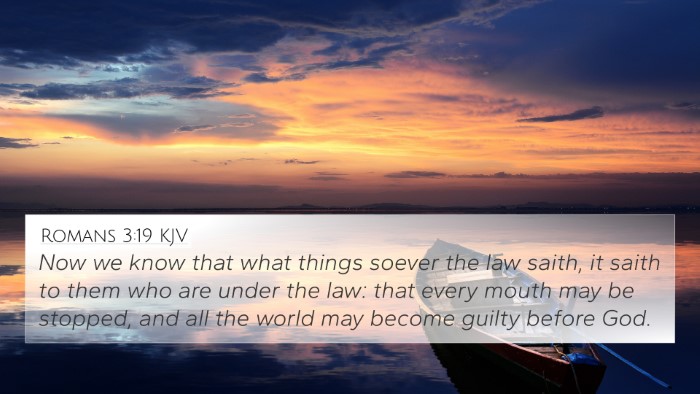Understanding Jeremiah 2:29
Verse: Jeremiah 2:29 - "Wherefore will ye plead with me? ye all have transgressed against me, saith the LORD."
Context and Overview
Jeremiah, often called the "weeping prophet," penned this verse during a time of widespread apostasy in Judah. The passage reveals God's frustration with the people of Israel who persistently turned away from Him despite His unceasing patience.
Interpretations from Public Domain Commentaries
Matthew Henry's Commentary
Henry emphasizes the futility of the people arguing their case with God. He notes that the Lord questions their motives, highlighting their repeated disobedience and covenant unfaithfulness. The interrogative tone suggests a call for self-examination and recognition of their sins.
Albert Barnes' Notes on the Bible
Barnes interprets this verse as God's challenge to the people of Judah. He points out that their attempts to justify themselves were in vain, as their actions had already spoken louder than words. Barnes suggests that God is inviting them to reflect on their history of rebellion against Him.
Adam Clarke's Commentary
Clarke connects the verse with the broader narrative of God's dealings with Israel. He notes that the phrase "ye all have transgressed" emphasizes the corporate guilt of the people. Clarke highlights the idea that God's patience was being tested to its limits, and His justice would soon demand a response.
Key Themes and Insights
- Divine Challenge: God challenges His people to recognize their transgressions.
- Corporate Guilt: The collective disobedience of Judah is underscored.
- Imminent Judgment: The verse hints at the consequences of their actions.
- Call for Reflection: A challenge to self-evaluate their relationship with God.
- God's Patience vs. Human Rebellion: A contrast between divine forbearance and human sinfulness.
Related Bible Cross-References
- Isaiah 43:26: God invites His people to put Him in remembrance and state their case.
- Jeremiah 5:3: God laments that His people are stubborn and refuse to receive correction.
- Hosea 4:1: There is no truth, mercy, or knowledge of God in the land.
- Micah 6:2: God calls His people to plead their case before Him.
- Romans 3:23: All have sinned and fall short of the glory of God.
- Ezekiel 18:30: Calls for repentance from sin for the people of Israel.
- Hebrews 10:26: A warning against willful sin after receiving the knowledge of truth.
- Psalm 106:6: We have sinned like our fathers; we have committed iniquity.
- 2 Chronicles 36:15-16: God continually sent messengers to warn the people, but they mocked and rejected them.
- Acts 3:19: Calls for repentance so that times of refreshing may come from the Lord.
SEO Keywords Integration
This interpretation incorporates various connections between Bible verses, particularly highlighting Bible verse parallels where Jeremiah 2:29 presents a poignant reminder of corporate sinfulness. When engaging in cross-referencing Biblical texts, studying Jeremiah alongside Isaiah 43:26 enhances understanding of the importance of accountability in faith. Tools for Bible cross-referencing like a Bible concordance can assist in conducting a comparative Bible verse analysis.
The exploration of Jeremiah 2:29 and its cross-references can yield rich insights, making it vital for studying Bible verses that relate to each other and identifying themes in the Bible. This passage serves as a reminder of how to find cross-references in the Bible that underscore the importance of maintaining a faithful walk with God.
Conclusion
Jeremiah 2:29 poses a serious question to its readers, inviting them to consider their own relationship with God. By exploring related scripture passages through cross-referencing Bible study methods, believers can deepen their understanding and gauge their spiritual standing before God.
